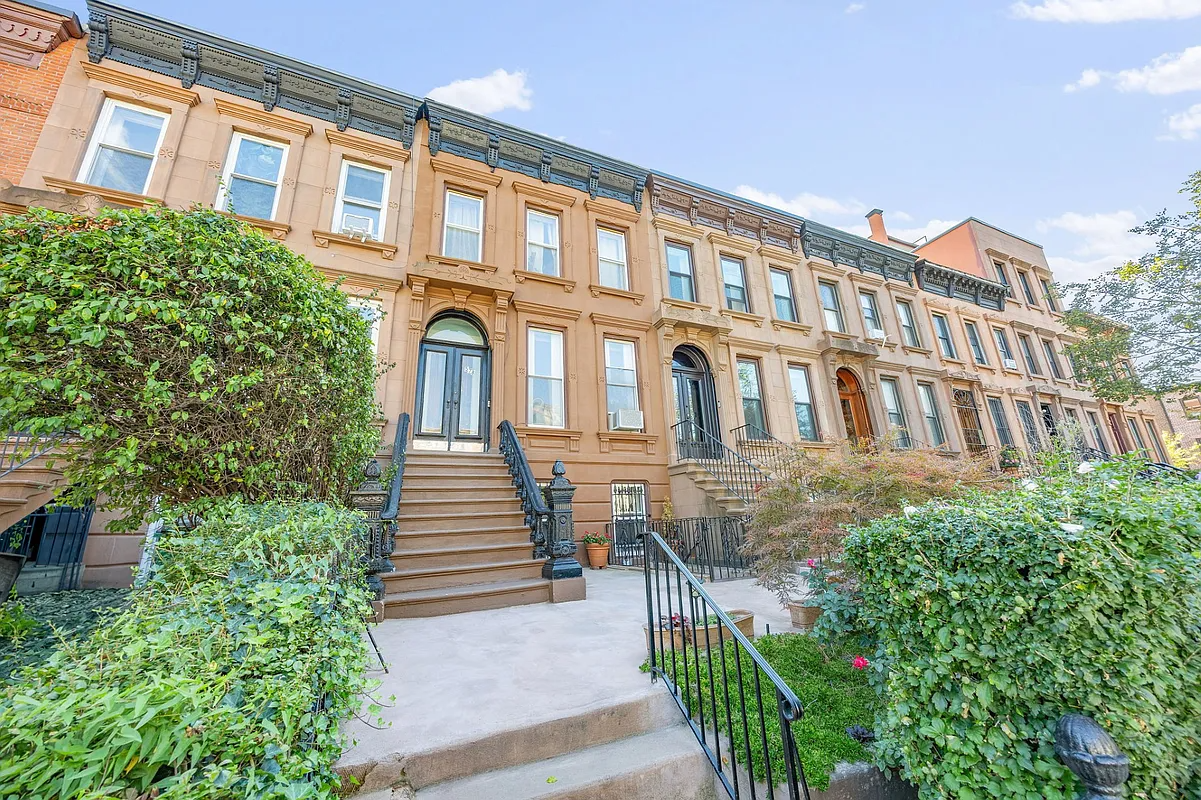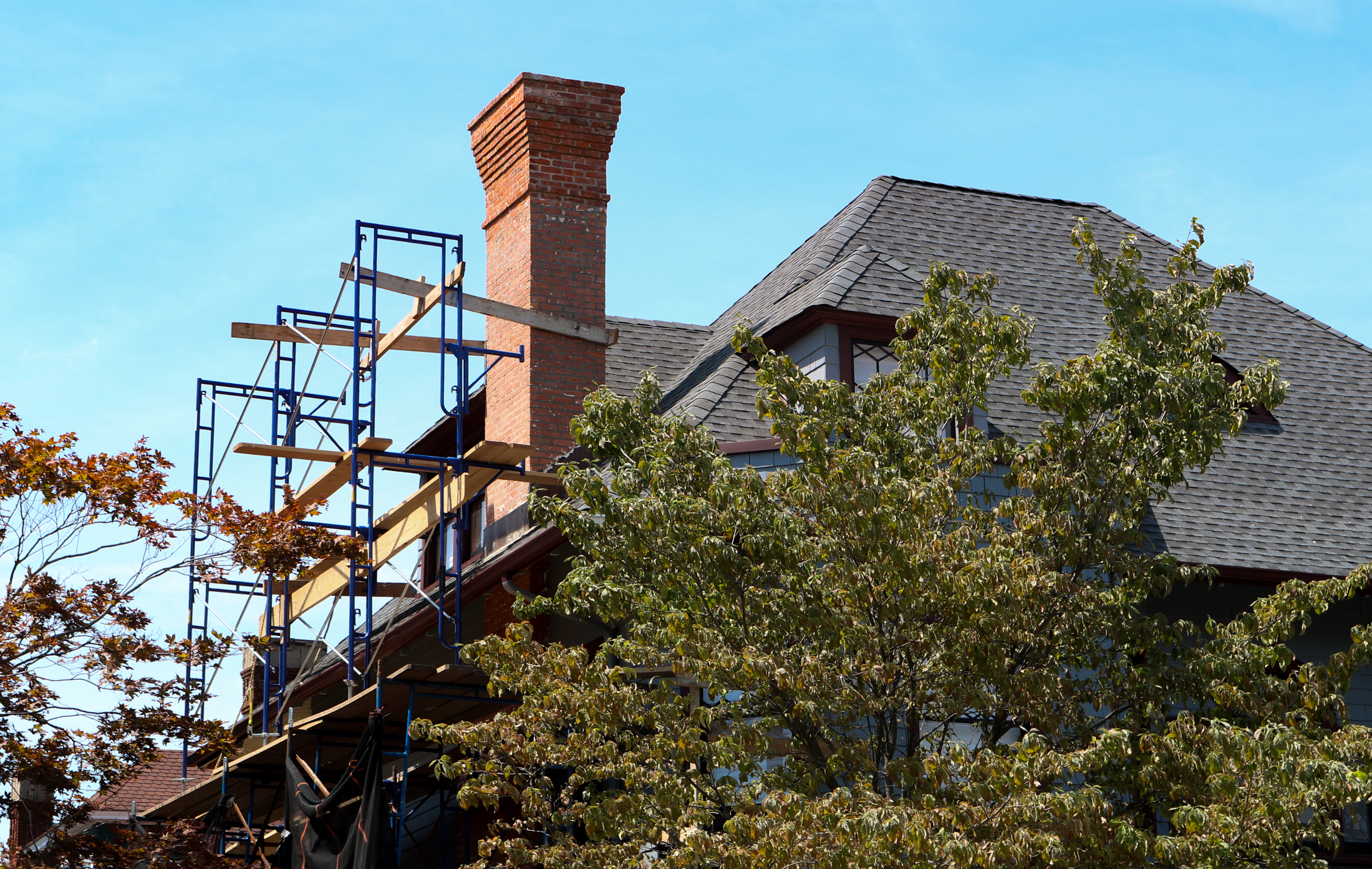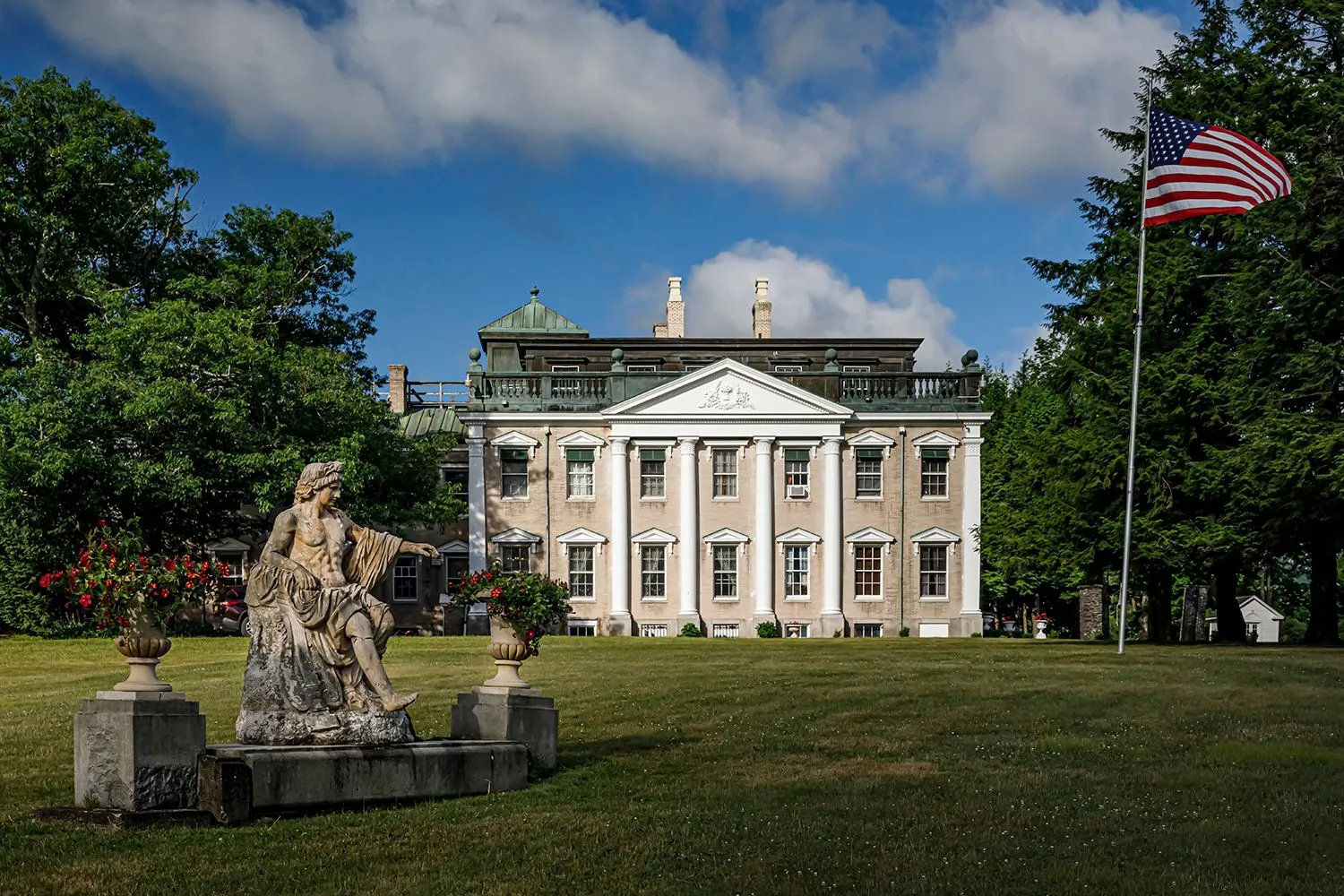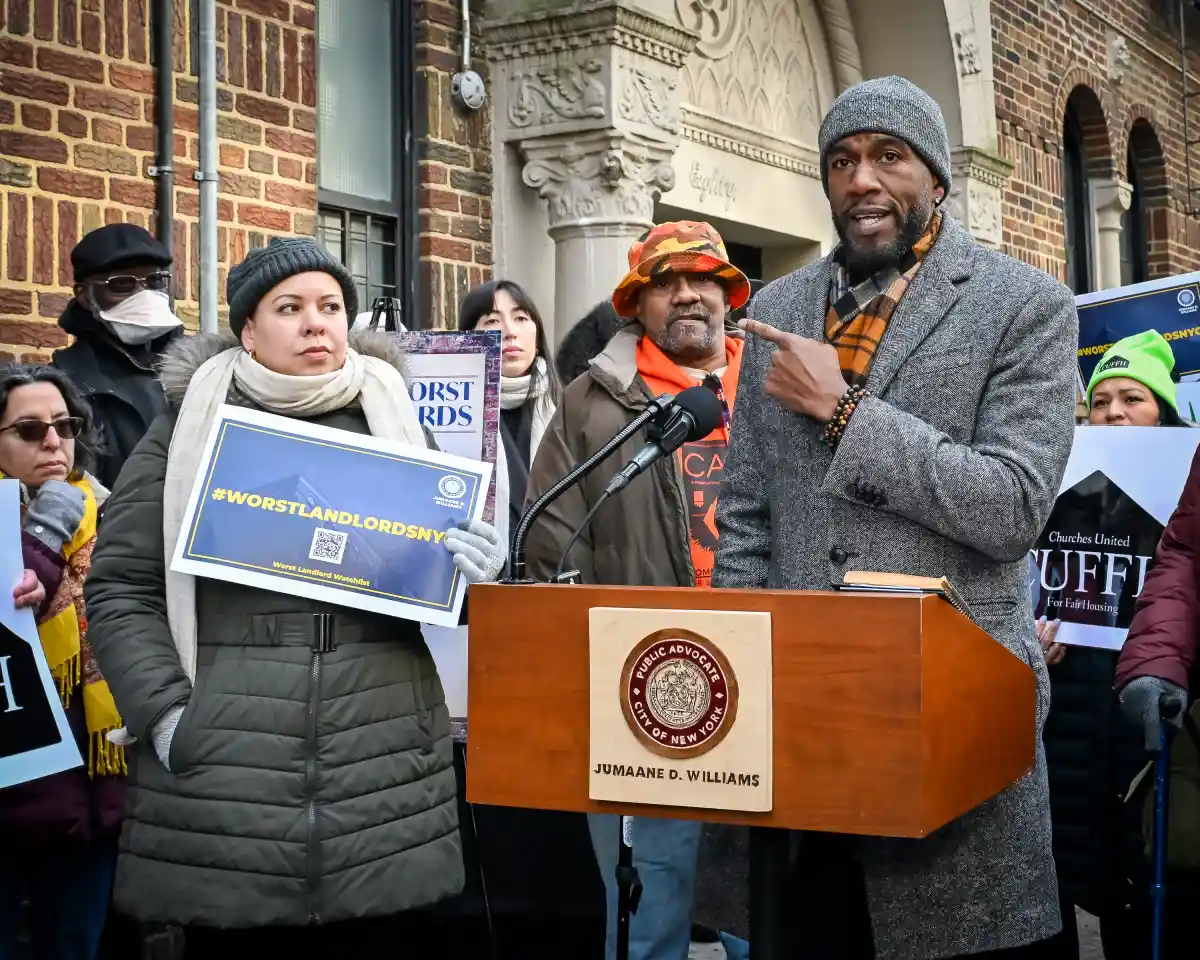Homeowners Ready to Legalize Basement Apartments Stuck in Red Tape
A pilot program intended to facilitate conversions could have gone into effect last month. It has not, and time is running out.

A pilot program allowed East Flatbush resident to legalize and rent out basement apartments, July 11, 2025. Photo by Alex Krales/THE CITY
by Samantha Maldonado
This article was originally published on July 14 5 a.m. EDT by THE CITY
Vanita Maloney knows there’s more than enough room in her home in East Flatbush, Brooklyn, to house other New Yorkers. She’s eager to rent out her basement.
But she can’t. A city pilot program to legalize and regulate basement apartments that could have been up and running by mid-June has not yet gotten off the ground.
The 65-year-old retiree lives on the home’s first floor, and her daughter lives on the top floor. Until an electrical fire in 2022, another daughter lived in the basement, which extends beneath the front porch.
Maloney wants to turn that level into an apartment after she completes some repairs and upgrades.
“I’m waiting for the program to come into fruition because I can’t put anyone there until I’m authorized to do so,” Maloney said. “I have to wait for them to start the process and bring in the correct people to ensure it’s approved.”
Though the law regulating basement apartments went into effect June 16, city agencies have not finalized related rules. There is no way for interested homeowners to apply to the pilot program, and an online portal the Adams administration announced nearly a year ago has not yet materialized. Key questions about how the program will work remain unanswered.
It’s been more than a year since the state legislature approved a five-year pilot program allowing New York City homeowners in 15 community districts — including Maloney’s — a simplified way to make their basement apartments safe and up to code. Basement apartments, home to an estimated tens of thousands of New Yorkers, can be prone to flooding and vulnerable to fires.
Advocates for tenants and homeowners in communities with many basement apartments heralded the pilot program as a significant step to bringing informal and potentially dangerous — but often affordable — living spaces out of the shadows.
The pilot program is only authorized until April 2029, which means that even if it began today, the program wouldn’t run the full five years it was intended to.
“We’re now 15 months into the five-year window and that’s becoming increasingly a short window for homeowners to be able to act,” said Howard Slatkin, executive director of the Citizens Housing and Planning Council. “They have lots of information to process and decisions to make and finances to review in order to understand if this is something they can start. We need to give them as soon as possible all the information they need.”
He added that the neighborhoods covered by the pilot program — which do not contain most of the city’s basement apartments — represent a limited scope of where basement legalization can happen: “We have to make the most of what we’ve got.”
Meanwhile, also on ice are legalizing basement apartments not in the pilot program neighborhoods and newly constructed basement apartments — as well as apartments in garages, attics and backyard cottages, which were all allowed as part of citywide zoning updates passed last year.
The Department of Buildings had said it wouldn’t issue permits for those kinds of apartments — known as accessory dwelling units (ADUs) — until the laws governing them became effective in June. But implementing those laws depended on rules from several agencies, which haven’t yet been finalized. So nearly a month later, ADUs are in limbo, too.
In a statement, City Hall spokesperson William Fowler called ADUs a “crucial piece” of the Adams administration’s zoning changes, known as City of Yes for Housing Opportunity.
“City agencies are working through the appropriate steps and rule changes required to ensure this new form of housing is introduced efficiently and safely,” Fowler said, adding that the online portal for interested homeowners would launch later this year.
The Red Tape
The upgrades needed to transform an existing basement or cellar residence into an above-board apartment — one that meets all city health and safety standards, as well as the state’s multiple dwelling law — can be expensive, prevent property owners from taking action and often do not improve safety, advocates say.
The pilot program allows for apartments in cellars, which are mostly below curb level and are banned everywhere else in the city. Basement apartments, located mostly above curb level, are allowed outside the pilot program, but the conversions or new-builds must meet all existing standards.
The pilot program waives the strictest aspects of the state’s multiple dwelling law, allowing homeowners to meet less stringent city health and safety standards.
Both newly built basement apartments and those to be legalized as part of the pilot program must rely on new rules that are being created by different city agencies. The Department of Health and Mental Hygiene proposed rules in late June regulating radon and toxic chemical fumes. The Department of Environmental Protection created a draft map showing flood-prone areas to make clear where basement apartments can’t go. And the DOB still must come up with rules around occupancy, use and safety. Each of the rules must be finalized and adopted by the city in a process that can take many months.
Solidified rules would help give certainty to homeowners operating outside the law or those who want to rectify violations they’ve been hit with, said Matthew Sooknanan, the Basement Apartments Safe for Everyone (BASE) campaign organizer at Chhaya CDC, a nonprofit that focuses on housing and serves South Asian and Indo-Caribbean communities in Queens.
“You ask people and they want to be legalized because it’ll give people accountability regardless of where they’re at, but people don’t want to get screwed over,” Sooknanan said.
For now, Sooknanan said he’s been trying to prepare homeowners with understanding the codes so they can take action when the time comes. Until then, tenants in illegal basement apartments remain vulnerable to safety hazards and lack standard renter protections.
Developers and homeowners who want to build ADUs from scratch — whether in basements or attics — must also hold off until the city finalizes rules. At least five new houses in Staten Island would include basement apartments, but the DOB audited those projects after first approving the permits too soon, as THE CITY previously reported.
Some others who are interested in ADUs don’t even know where to begin — like Giovi Collado, who lives with multiple generations of family members in a home in Richmond Hill, Queens. The 32-year-old said he’s eager to get some more space for himself and his partner, and likes the idea of building a backyard cottage.
“I like to keep it close to the family. This is a good solution,” Collado said. “You get to build, essentially, a home.”
Wil Fisher, founding principal of Unit Two Development, a firm that helps homeowners navigate the ADU process, said he’s spoken with dozens of people who want to build ADUs on their properties or convert existing spaces — like garages — into livable quarters, even if they can’t quite yet move forward.
“People are excited. It’s really a game-changer,” Fisher said. “There are layers to this process and the administrative roll-out … is key to making sure it’s a success and we actually deliver these units.”
Related Stories
- In New York There Is a Legal Difference Between a Basement and a Cellar
- City Council Passes Tweaked ‘City of Yes’ Designed to Add 82K Homes Over 15 Years
- Brooklynites React to Amended ‘City of Yes’ Housing Proposal
Email tips@brownstoner.com with further comments, questions or tips. Follow Brownstoner on X and Instagram, and like us on Facebook.





What's Your Take? Leave a Comment